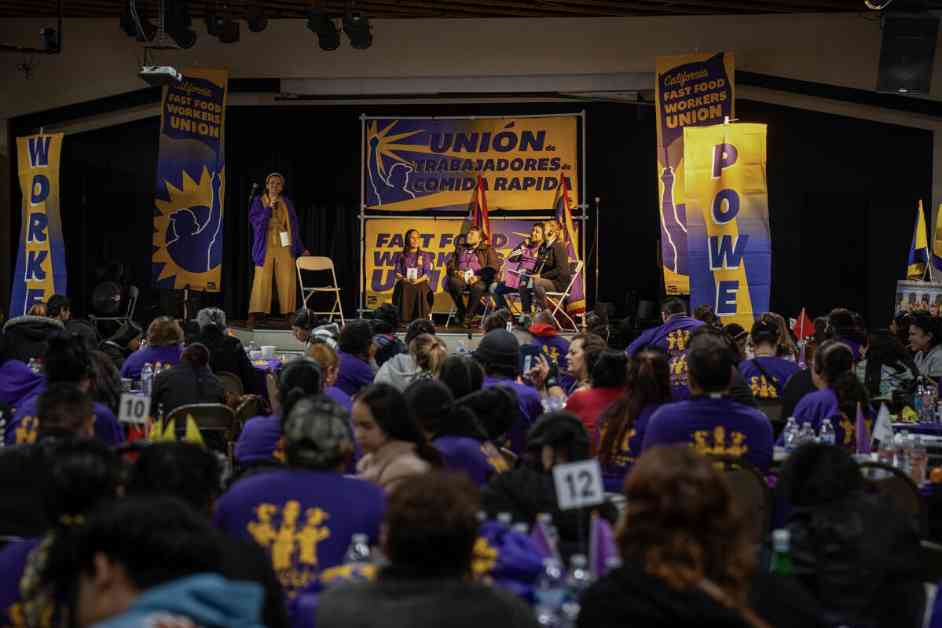California’s Minimum Wage Increase: Workers Advocate for $25 and Beyond
In a move to address the growing concerns of low-wage workers, California is once again at the forefront of the fight for fair wages. The state, known for its progressive policies, has already made strides in increasing the minimum wage to $15 an hour by 2022, thanks to a series of incremental hikes enacted in 2016. However, as the cost of living continues to rise, worker groups are pushing for even more substantial increases.
The push for a higher minimum wage comes as Proposition 32, a measure to raise the minimum wage to $18 next year, has been confirmed for Californians’ ballots in November. While this may seem like a significant step forward, it is worth noting that the current minimum wage has already been steadily increasing due to inflation, reaching $16 this year and set to bump up to $16.50 in January.
Furthermore, the high cost of living has prompted local officials in over two dozen cities to implement their own minimum wage policies, surpassing the state-mandated minimum. Currently, 40 cities and counties in California have a higher minimum wage than the state, with some already exceeding $18 or being just one inflationary bump away.
Unions in California have also played a significant role in advocating for higher wages for specific industries. Fast food workers, health care employees, and even hotel workers in some cities have secured industry-specific wage floors that far exceed the statewide minimum. For example, fast food workers received a raise to a minimum of $20 in April and are now seeking an inflationary bump for the following year. In Los Angeles, hotel and airport workers are demanding a $25 minimum wage, with a goal of reaching $30 by the time the 2028 Olympics roll around.
While the proposed $18 minimum wage may benefit around 2 million workers, it falls short of the estimated 4.8 million workers who would have benefited from a $15 minimum wage increase proposed in 2022. Despite the potential impact, there are concerns that $18 may not be sufficient to help low-wage workers afford the high cost of living in California.
Advocacy groups like One Fair Wage have called for a higher minimum wage, with some pushing for a $20 wage instead. Even the sponsor of Proposition 32, Joe Sanberg, acknowledges that $18 may not be enough to provide a living wage for all workers. Critics argue that more ambitious measures are needed to ensure that all Californians can afford basic necessities.
Business and labor groups have been engaged in discussions over the proposed minimum wage increase, with some proponents advocating for a higher wage while others express concerns about the potential impact on businesses. While the California Labor Federation has endorsed Prop. 32 as a way to move forward, there is still uncertainty about how much effort will be put into passing the measure.
Opposition to the proposed minimum wage increase is also mounting, with business groups raising concerns about the potential for price hikes and the impact on businesses. Some argue that raising the minimum wage could lead to job cuts and reduced opportunities for less-experienced workers, particularly in industries like the restaurant sector.
As the debate over the minimum wage continues, it is clear that there are differing opinions on the best way to address the needs of low-wage workers while also considering the impact on businesses and the economy. While some advocate for a higher minimum wage to provide a living wage for all workers, others caution against potential negative consequences, such as job losses and price increases. Ultimately, the decision on whether to raise the minimum wage to $18 and beyond will have far-reaching implications for workers and businesses in California.






















